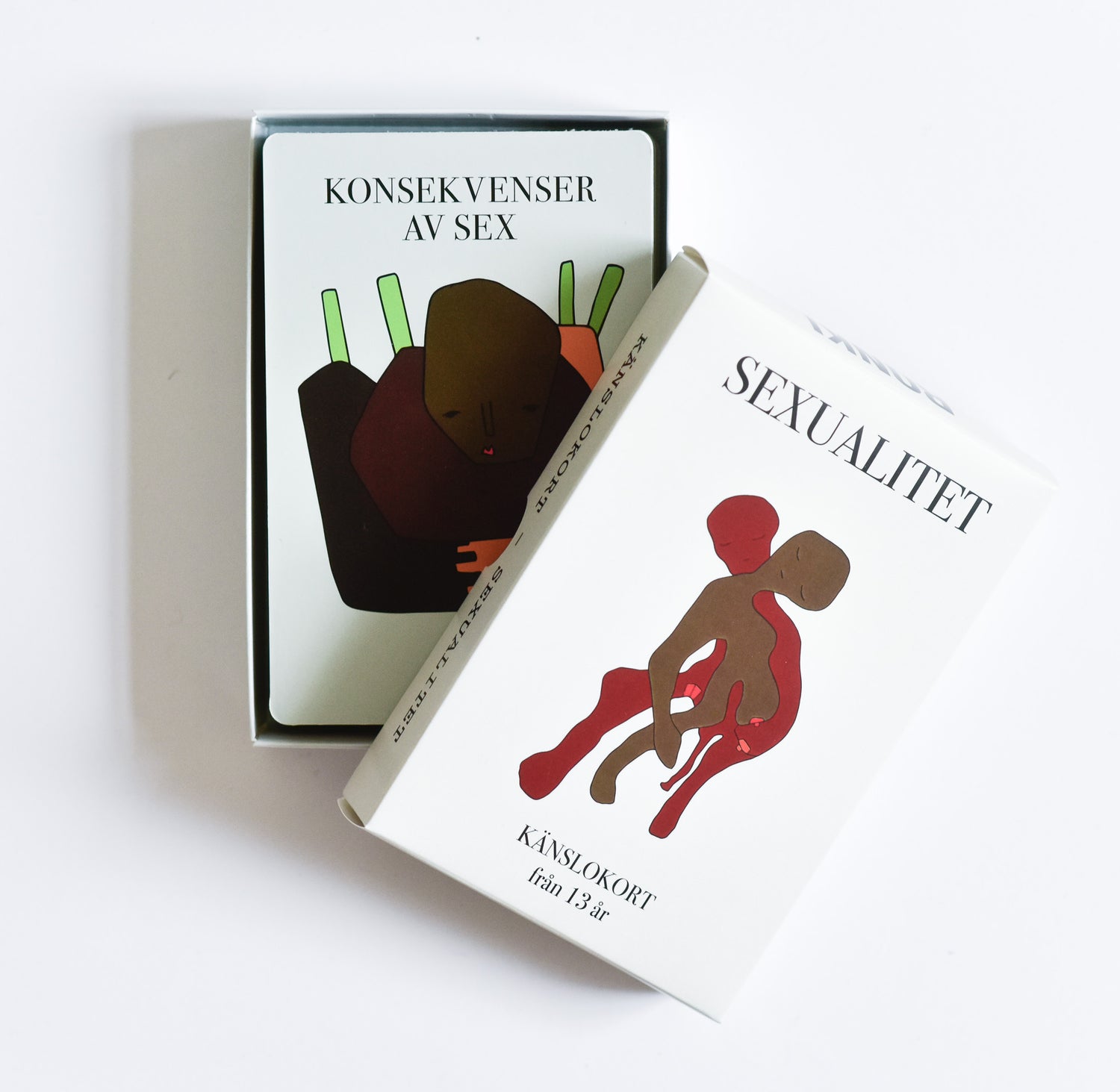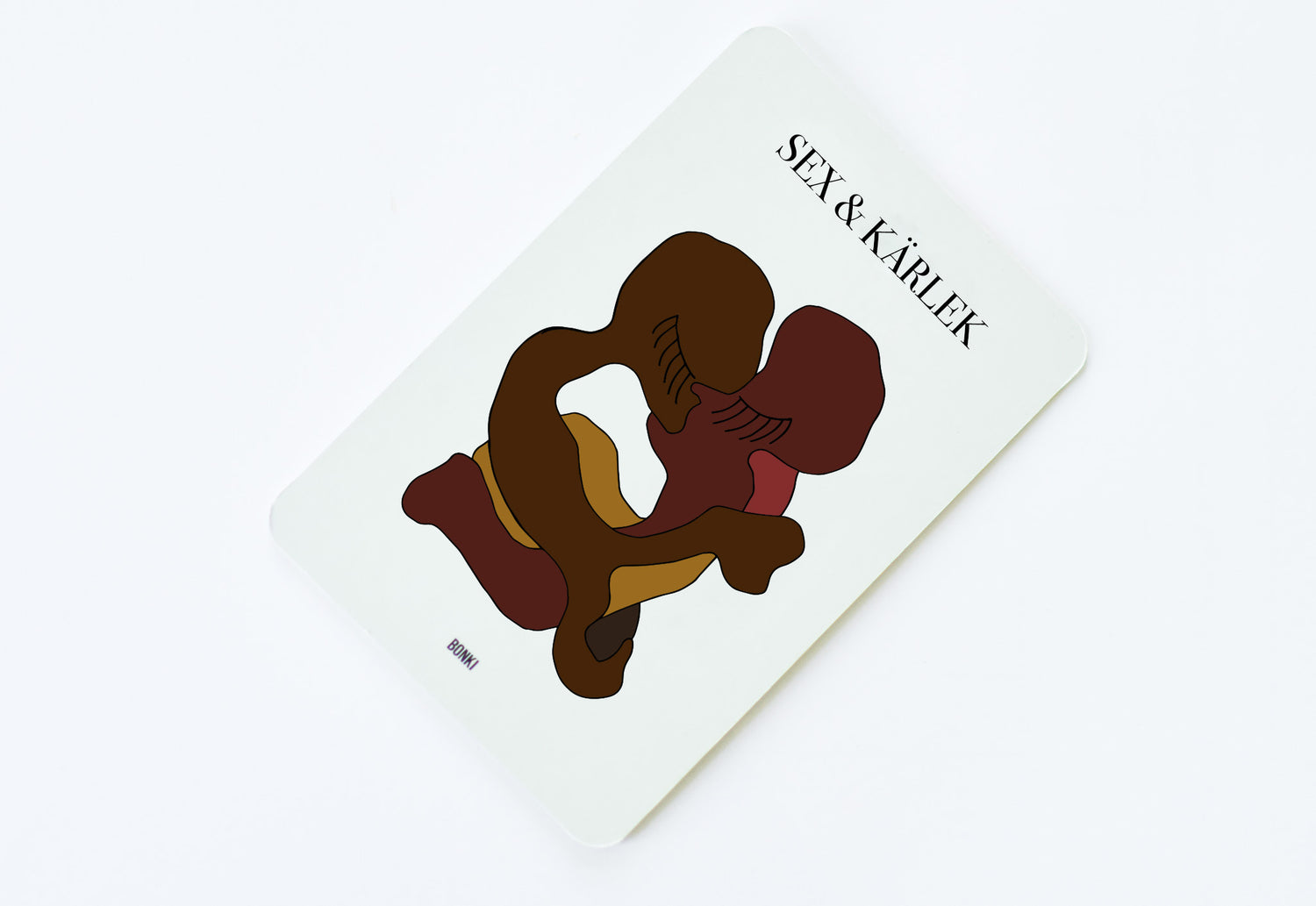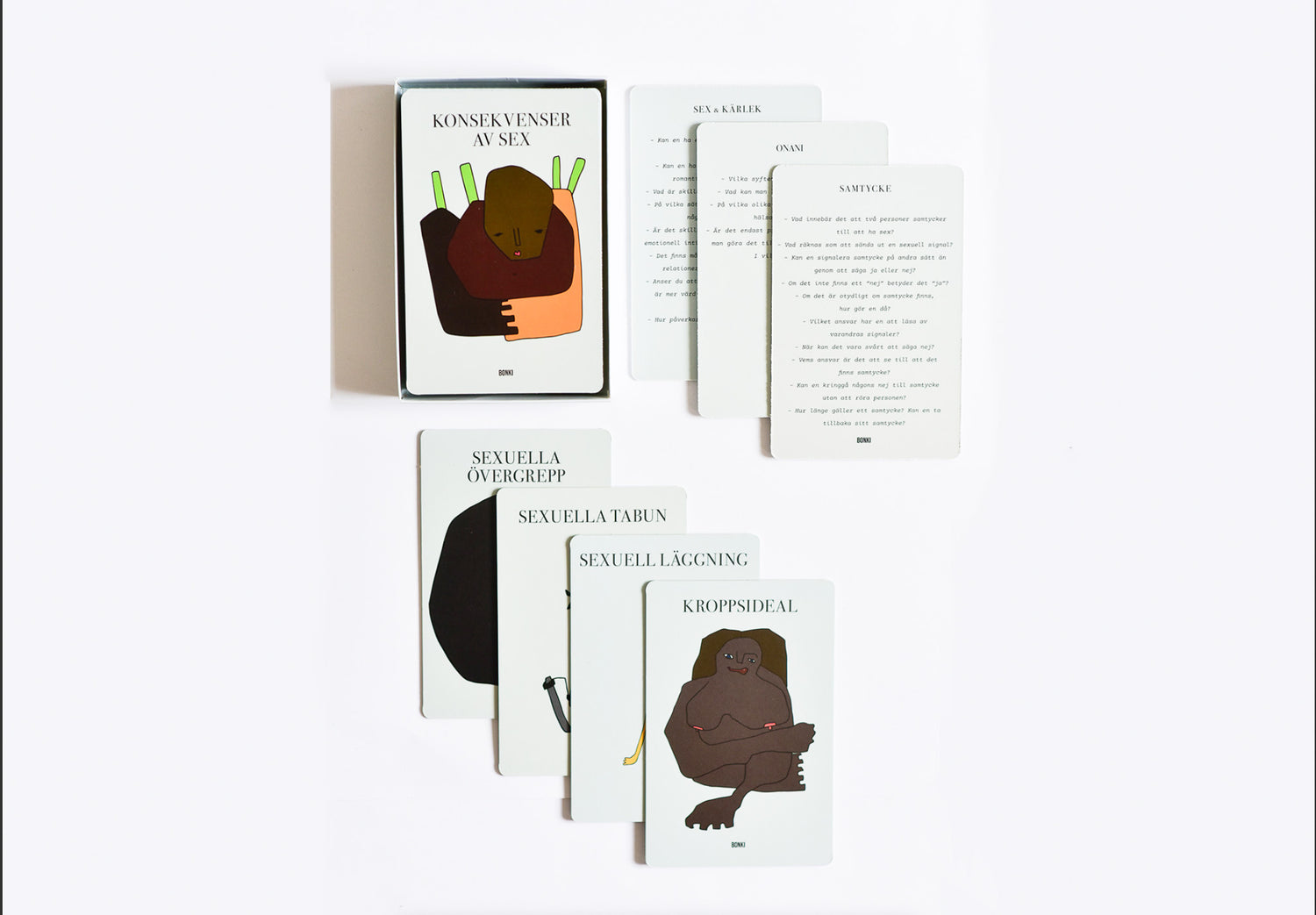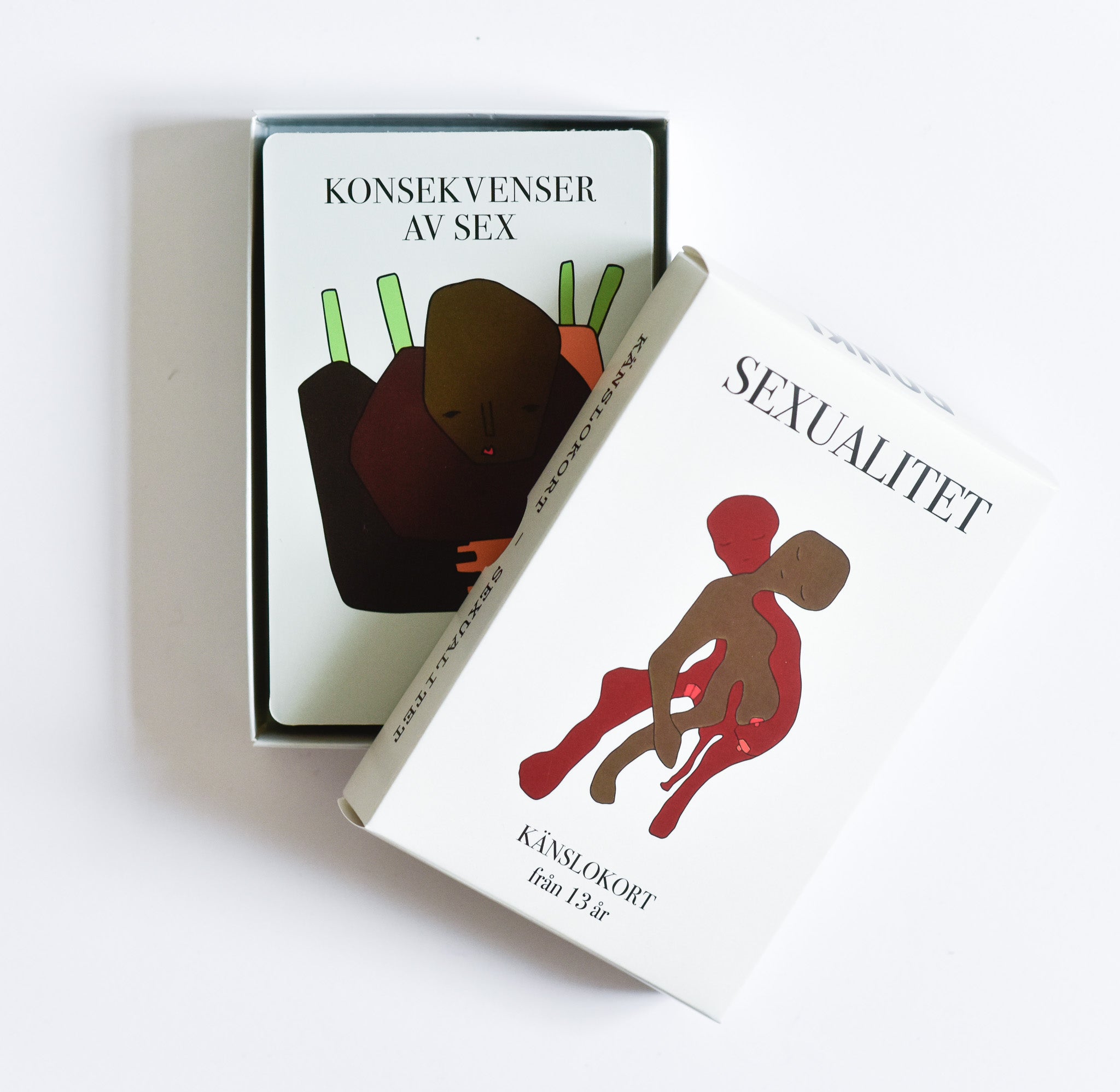
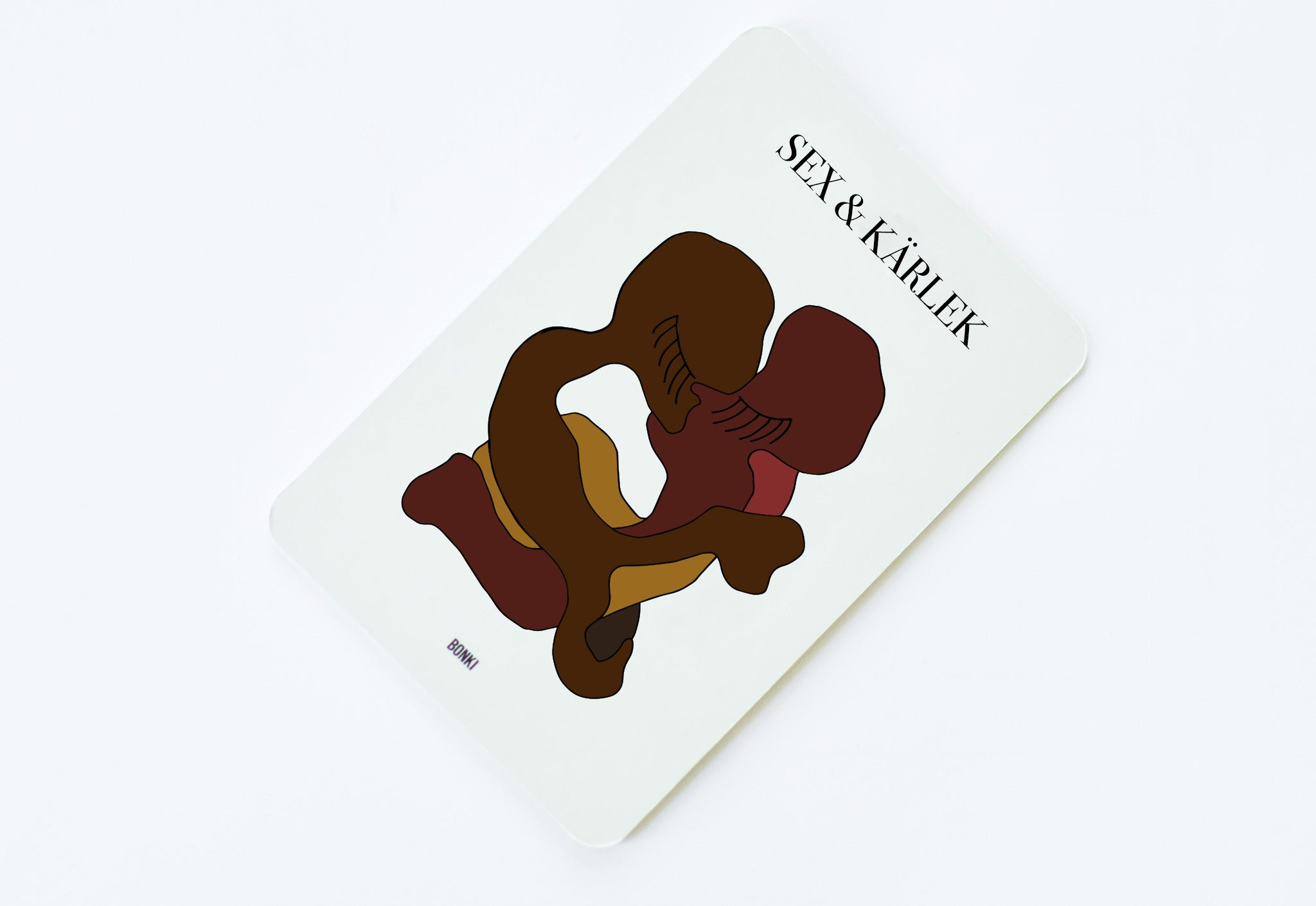
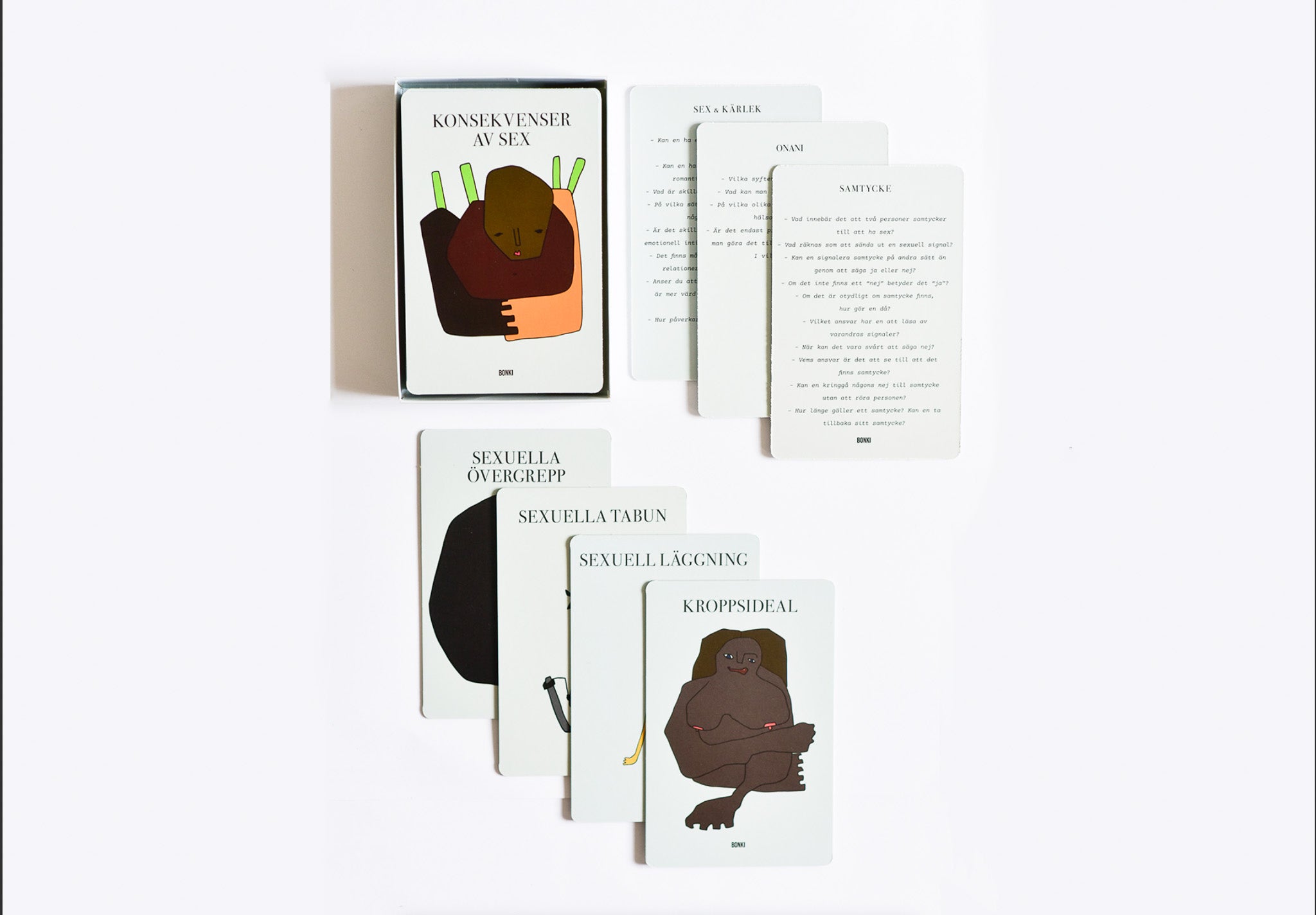
PRODUCT DESCRIPTION
Connection Cards sexuality contains 15 cards and a guide for you to hold the conversations developed in collaboration with a psychologist. Sexuality, consent and relationships are exciting, but sometimes difficult and sensitive topics. Starting with the 2022-2023 school year, sexual education changed its name to include topics such as consent and voluntariness to a greater extent.
WHAT FEELINGS
- Gender identity
- Sexual orientation
- Standards
- Body ideal
- Pornography
- Masturbation
- Consent
- Sex & responsibility
- Sex & love
- Sexual mistakes
- Sexual assault
- Consequences of sex
- Sexual taboos
- Sex as a threat
IS THE CARD ONLY AIMING AT GRADE 7, OR WHAT AGE IS IT FROM?
The cards are aimed at those of you who work with children and young people and are interested in sexual knowledge, or perhaps are the parent of a curious child. The cards contain topics that are suitable for children from around 13 years of age. However, it is you as an adult and the conversation leader who decides what is suitable for your child(ren). The cards that the conversation leader deems are not suitable for the young people, students or age group will of course be selected out.
WHAT SHOULD I AS AN ADULT DO WITH THE CARD?
The cards come with a guide that covers your role as a conversation leader, the conversation climate and preparations. Each card contains a topic. The topic can be covered during a lesson or a meeting. Each card contains support words to help the conversation leader keep in mind when discussing the questions on the card. Partly to keep the focus on the card's title, but also to delimit the topic and to provide support for asking other follow-up questions that are relevant. For example, the support words "age, experience, respect, communication" are on the card "Consent".
AREN'T SOME OF THESE TOPICS TOO ADVANCED FOR CHILDREN?
We have chosen to include topics that may seem too advanced from an adult perspective. Children today have great opportunities to search for information about these topics themselves. By talking in groups about things that the children may have encountered on their own, we help them understand the context they would otherwise not have been given. If a topic still feels too advanced for your child(ren), simply put it aside.
WHY?
Connection Cards Sexuality contains 15 cards and a guide for those who will hold the conversations, developed in collaboration with a psychologist.
Sexuality, consent, and relationships are exciting, but sometimes difficult and sensitive topics. Starting in the 2022-2023 academic year, sexual education changed its name to include topics such as consent and voluntariness to a greater extent.

Connection Cards Sexuality contains 15 cards and a guide for those who will hold the conversations, developed in collaboration with a psychologist.

Sexuality, consent, and relationships are exciting, but sometimes difficult and sensitive topics. Starting in the 2022-2023 academic year, sexual education changed its name to include topics such as consent and voluntariness to a greater extent.

The conversation cards are a support for those of you who will be holding these discussions.
Areas such as sexuality, in relation to the law of consent or in relation to one's own preferences and
thoughts, are sometimes sensitive topics. Much of the traditional sexual knowledge
has been about biology and what physically happens to and in our bodies. Sex and relationships, however, are topics that are very much about our emotions and our relationships with other people.



